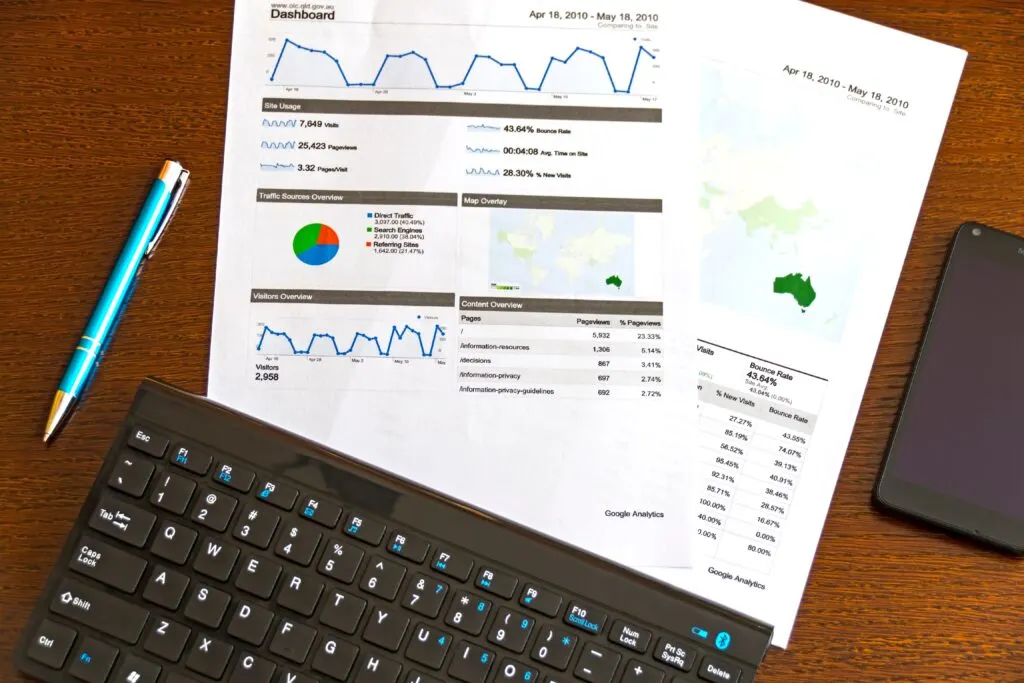Your credit score is among the most important aspects of your financial health. It’s the break-or-make detail that determines whether your auto, mortgage, or student loan is approved and, if so, how favorable the terms are.
If you want to improve your credit score, the chances are that you’re keeping tabs on many factors. For instance, you might make timely payments, watch your credit utilization ratio, keep old accounts open, etc.
However, did you know that credit inquiries make up to 10% of your FICO score and that certain credit pulls can reduce your score? This post will discuss hard credit inquiries, including what they are, their impact on credit score, how many inquiries are too many, etc.
Let’s get started!

What is a hard inquiry?
Also known as a hard credit pull, a hard credit inquiry is a request for credit information when you apply for a credit account. It means that your credit card issuer or lender has requested to look at a copy of your credit report to determine the magnitude of risk you pose as a borrower.
The hard inquiry affects the lending decision and impacts your credit score. Research indicates that a single hard pull can reduce your credit score by up to five points, so it’s important to know when a hard inquiry is carried out.
Here are a few scenarios that generate hard credit inquiries:
- Mortgage applications
- Apartment rental application
- New credit card applications or new lines of credit from a credit card company
- Personal loan applications
- Request for a credit limit increase
- Student loan applications
- Phone and utility applications
- Car loan applications
Hard credit pulls are comprehensive and examine several facets of an individual’s credit history. However, the hard credit pull isn’t the only inquiry that can be made; soft credit pulls are also performed to show your credit information.
Let’s see the soft credit pull is to help you differentiate it from hard pulls.
What’s a soft inquiry?
Soft pulls (or soft credit checks, or soft inquiries) occur when a non-lending firm checks your credit as part of a background check. The soft credit check may happen in various instances, such as when an employer decides to check your credit rating before hiring you.
Unlike hard pulls, soft credit checks don’t affect your credit scores. Also, the pulls may or may not be added to your credit reports, depending on the credit bureau.
Here are some scenarios that generate soft credit checks:
- Insurance quotes
- When a potential employer checks your credit report as part of the screening process
- One of your current lenders checks your credit report
- A firm checks your credit report to determine if you qualify for pre-approval offers.
- Credit monitoring services
- Pre-qualified offers for credit cards, loans, or insurance
- When you apply for a soft-pull pre-approval with a lender
- When you check your credit report
It’s important to note that the difference between a soft and a hard inquiry boils down to whether you granted permission to have your credit report checked. The check might be classified as a hard inquiry if you gave consent; otherwise, it’s a soft inquiry.
If you aren’t sure how a specific inquiry will be classified, ask the financial institution, credit card issuer, or the firm involved to tell you whether it’s a soft or a hard credit inquiry.
Will checking my own credit score lower it?
As mentioned above, checking your credit score is a soft check and, thus, won’t affect your credit score. Experts recommend checking your credit report for errors and inaccuracies throughout the year.
All the three major credit bureaus – Equifax, TransUnion, and Experian – are obliged to offer one free copy of your credit report every year. Also, you can get your credit report using different mobile apps or at annualcreditreport.com.

How much does hard credit pull affect my credit score?
For better understanding, the FICO score is a three-digit number with a range between 300 to 850, with 300 being the poorest and 850 the best. Factors like late payments of bills or hard credit inquiries are likely to reduce your credit score (towards the 300 mark).
However, hard credit inquiries have little impact on your FICO credit scores, unlike late payments. In most cases, one additional credit inquiry will deduct less than 5 points from your FICO scores.
How many hard inquiries are too many?
There is no specific number or limit for hard credit pulls, and as aforementioned, they only make up around 10% of your FICO credit scores. The impact of hard credit pull on your FICO credit scores ultimately depends on your overall credit health.
Generally, one or two hard inquiries will likely reduce your credit score, but the effect won’t be significant. However, having several hard checks (six or more) within a short period will likely affect your FICO scores.
The exception to this is when you are purchasing a home or car. Creditors realize you want to shop around for the best rate possible. Therefore, any credit inquiries made within a short time frame (usually within a 30-day window) will really only affect your credit score once.
This is because creditors look at several credit applications in a short amount of time as a sign of risk. Hard pulls remain on your credit report for two years but are used to determine your credit score for one year.
Hard pulls will have a greater impact if you have a short credit history or are classified as having greater credit risk.
As for the soft credit inquiries, no number is considered too much because they don’t affect your credit scores.

How can several hard credit inquiries affect my credit score?
Multiple hard credit checks will likely hurt your credit score, but it depends on the type of credit you’re shopping for. If you’re rate shopping to determine the ideal interest rates on things like a car or a mortgage loan, FICO and major credit bureaus understand that you’ll likely have several credit inquiries on your report.
That is why these bodies treat the same kind of credit as a single inquiry if they happen within a specific period. The older FICO scoring often consolidates checks made within two weeks, while the newest FICO score allows consumers a grace period of 45 days to shop for the best rates and terms.
The creditors will choose the version of the FICO scoring formula they want the credit reporting firm to use to calculate their FICO scores.
What do I need to remember when rate shopping?
If you want a loan, conduct a rate shopping within a certain period, such as 30 days. FICO scores differentiate between a search for many credit lines and a single loan.
Only apply for and open new credit accounts as required when you look for new credit. Also, it’s recommended that you review your FICO scores and credit report before applying to know where you stand.

Minimizing the impacts of hard credit inquiries
Hard checks are not bad to have – even though they may lead to a temporary dip in your FICO scores. Also, don’t let the fear of racking up various hard inquiries stop you from shopping for the best interest rates.
Regardless, it’s a good practice to learn the various tips to reduce the number of hard inquiries. Below are a few guidelines to help you keep track of your hard inquiries:
- Avoid applying for several credit cards within a short timeframe. Experts recommend that you apply for a credit card after every six months.
- Apply for credit cards that you’ll benefit from using only. Having a lot of hard inquiries on cards you don’t need could cost you
- Check your credit score beforehand – this is a soft credit check and won’t affect your credit score.
- Use prequalification tools to shop for the best loan terms without damaging your credit.
More importantly, you can condense your credit shopping into a short period of time (preferably 14 days) when planning to take mortgage or auto loans. Credit bureaus track this rate shopping type as one credit inquiry that less affects your credit score.
How do I dispute or remove credit inquiries?
If hard credit inquiries are conducted on your credit report without your consent, you can dispute it to have it removed. Specifically, you can dispute with the major credit bureaus if the credit inquiry results from fraud, like identity theft or error.
Below is how to file a dispute with each major credit bureau:
Remember, you cannot remove the inquiry from your credit report if you initiated it.
The bottom line
Credit drives today’s economy – you need it to get an auto, student, or home loan for better terms. Several factors affect your credit, including your credit history, credit utilization ratio, payment history, and hard inquiries.
This post gives you a better understanding of the hard credit checks by discussing their effects on your credit score, how many hard inquiries are enough, and more. Good luck as you use it to attain a good credit score and improve your financial health.
